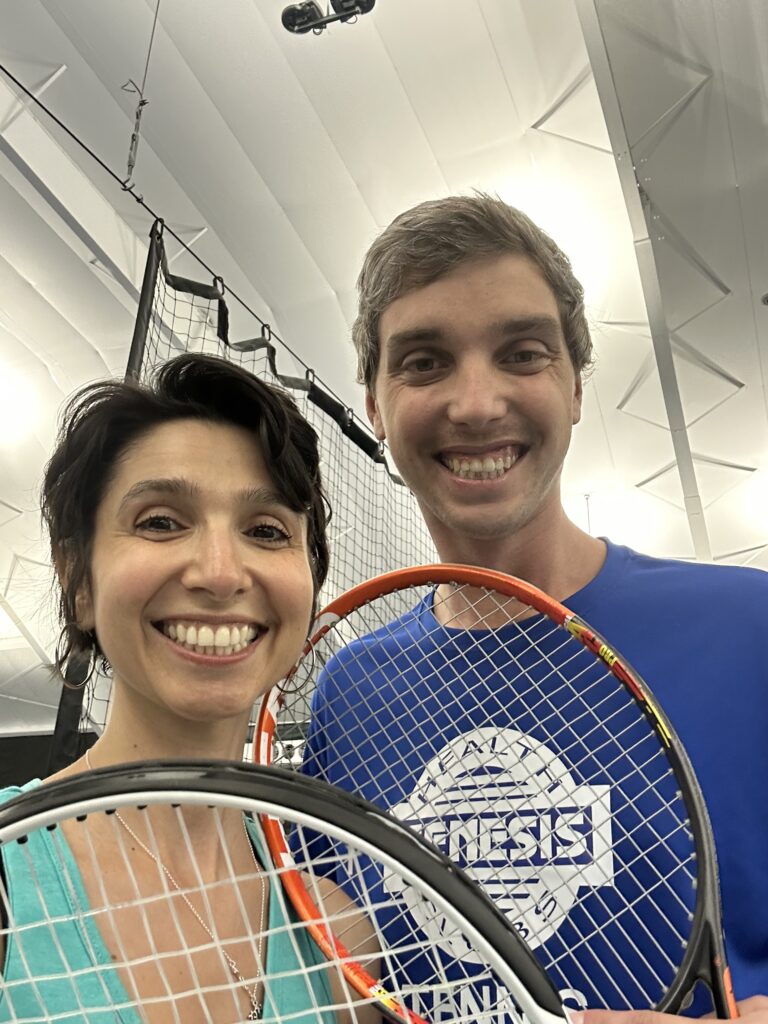In my journey from a 2.5 to a 4.5 tennis player, I've learned a profound lesson that goes beyond
the boundaries of the tennis court: The immense value of deliberate practice.
It would be easy for me to spend hours on the court, hitting ball after ball, hoping to improve.
In fact, that's how I spent my spring and summer.
While time and effort are commendable, they alone aren't enough for substantial growth.
That's where the magic of deliberate practice comes in.
Deliberate practice is a concept that was popularized by Anders Ericsson, who studied the
habits of top performers across various fields. Ericsson's research showed that with the right
type and amount of practice, most people can achieve exceptional levels of skill and
performance in almost any organizational coaching domain.
But it only works if you follow this very specific kind of practice (I outline the steps at the end of
this post).
I had my first lesson with a coach about 3 weeks ago, and my body was so sore after that I kept
saying, "what have I been playing all this time???" My body was just not used to the
movements he was asking me to do!

That's my coach Elliott, in the picture.
When trying to improve on our own, we rely heavily on self-assessment, which can often be
clouded by our biases or limited perspective. In contrast, a coach provides an external and
experienced viewpoint. They see the nuances in our techniques, the small yet significant errors
in our form, and the habits that hold us back.
I've grown more in my abilities over the last 3 weeks than I have in my first 6 months of playing
tennis!
Here's how:
With a coach's guidance, our practice sessions become more targeted. They guide our focus,
correct our mistakes in real-time, and introduce drills tailored to our needs. This structured and deliberate approach to organizational coaching through leadership coaching services ensures that we're not just practicing but practicing right. The result? A faster and more efficient improvement trajectory.
For anyone out there striving for excellence, be it in tennis, a professional field, or a personal
hobby, remember this: While passion and persistence are crucial, the guidance of a mentor and
the discipline of deliberate practice can be the difference between slow progression and
accelerated mastery.
And if you want to know if you're taking advantage of deliberate practice, consider these
important elements:
In contrast, here are the potential issues with solo practice:
I'd love to know if you've ever taken advantage of deliberate practice through leadership coaching services to master a skill.
And stay tuned for more insights on my journey. The road to 4.5 continues!